Bryce Moore's Blog, page 261
November 5, 2012
Communication Break Down: Vodnik Chapter Twenty-Seven

 Welcome to Chapter Twenty-Seven. Hard to believe I've been doing these things for this long now. We end at Chapter Thirty-Three, so only six or so left after this one, and then it'll all be finished.
Welcome to Chapter Twenty-Seven. Hard to believe I've been doing these things for this long now. We end at Chapter Thirty-Three, so only six or so left after this one, and then it'll all be finished.I decided to talk about communication this week, mainly because I see it as being one of the big reasons much of the plot ends up actually happening. Poor communication. Tomas doesn't talk to his parents, Katka insists on keeping secrets. Lubos, Babka, the vodnik--everybody's lying to everyone else in one way or another throughout the novel.
This wasn't the easiest thing for me to write. I'm a huge fan of communication. The more people talk, the less likely it becomes that people will be misunderstood. Scratch that--talking isn't the only thing people need to do. They need to listen, as well. For Tomas's parents to be so clueless about everything their son is going through in this book . . . says something about their relationship, I suppose. Though in their defense, they're going through some pretty drastic life changes of their own at the same time all this is going on.
You'd think that for a fantasy writer, writing from someone else's viewpoint would be easy. I mean, I've written from an alpaca viewpoint, for crying out loud. But when I'm writing from a different character's viewpoint, I typically share a lot in common with that character, whether it's an obsession with pop culture or noir or heist movies--in the end, a lot of my own personality inevitably bubbles its way to the surface.
The lack of communication thing . . . it was hard to capture. Does that sound stupid? I mean, in the course of my writing, I've put myself in the shoes of murderers, liars, con men, crooks, and criminals. How hard could it be to just have a family not communicate at all?
I suppose it's because most of the criminals I've written have viewed themselves as good guys. They make decisions that are in their best interest, and I've got plenty of experience doing that. But to my way of thinking, poor communication is almost never in my best interest. Yes, there are secrets to keep from time to time, and different ways to spin information. But the fundamental communication screw up that is present in Tomas's family is much more than that.
As I write about it, I think that I've identified some more of the problem. Because the more I thought about it, the more I realized that most families have unspoken communication rules. Things that you just don't discuss. (Or is that just my family?) Maybe it's not bringing up Uncle Jack's college days. Or don't ask Aunt Rachel about her earrings. (Note: I don't have an Uncle Jack or an Aunt Rachel.) These are simple examples, but the principle holds true: maybe for families and friendships to work well, you have to pick and choose what you talk about.
So why was it hard for me to write this one?
I think it's because it's not my family. Families are unique beasts. Each one is different. And if you've grown up in one, then you know all the unspoken rules. Rules you don't even notice until you're married and someone else is trying to understand them. (Or when you get married and try to navigate someone else's family yourself.) There are things you do or don't say depending on the situation, and it makes complete sense to you, but no sense at all to someone else.
My task with this novel was to portray that sort of family relationship, but do it in a way that makes enough sense to the outsider, without having Tomas come right out and say "This is my family. This is what we talk about. This is what we don't discuss." Because it's not that sort of narration. He's telling the story his way, and there's no way he'd come out and just state it like that.
Writing can be difficult. Hopefully this blog post wasn't difficult to understand. :-)
That's all I've got for you today, folks. Have a nice Monday![image error]

Published on November 05, 2012 10:30
November 2, 2012
My Current Take on the Political Scene
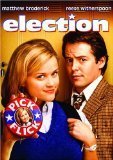
 I continue to follow the presidential race quite closely. And by "quite closely," I of course mean habitually checking the polls and pundits every break I get. At breakfast. Before I go to bed. At dinner. Constantly. (For those of you playing along at home, my current "go-to" websites for news and information on this are:
I continue to follow the presidential race quite closely. And by "quite closely," I of course mean habitually checking the polls and pundits every break I get. At breakfast. Before I go to bed. At dinner. Constantly. (For those of you playing along at home, my current "go-to" websites for news and information on this are:Real Clear Politics--some great commentary and analysis compiled from all over the place. Fairly good trackers on the various polls.
FiveThirtyEight--More super statistics.
Scott Erb's Poll Updates--A political science professor here at my university, Scott does a great job compiling all the various polls out there, presenting them for your viewing pleasure. He updates them very frequently.
I supplement those three mainstays with some CNN, some Fox News, some Drudge, some Huffington Post, and then a mish-mash of whatever-the-heck-I-happen-to-stumble-across. My goal in all this is to get as wide a range of input as possible, from the right-leaning to the left-leaning and everywhere in between. Not because I agree with all of it, but because that's sort of what "informed" means to me.
The more I follow this race, the more I'm convinced that no one knows what's going to happen on Tuesday. There are certainly win scenarios for both sides. Republicans think pollsters are misinterpreting their own polls, and they make some pretty compelling arguments for why that might be the case. Then again, Democrats have some strong responses against that line of attack.
Net result? I have no idea what to think, but I find it all incredibly fascinating. It will be very interesting to read the responses people have on Wednesday (or whenever the results are really known). Half of these people are going to be looking quite foolish, methinks. Though of course they'll be able to blame it on other factors. But they'll have to blame it on something. This is the first time that I've followed politics that polls stopped looking so definite to me. It all comes down to the assumptions pollsters make about the makeup of the electorate on election day, and that's much more of an art than a science, it appears. Which is definitely not the way pollsters like to portray their results.
How much of an impact will this election have on the country? I honestly don't believe it will be earth-shattering. Whoever wins will have to deal with a bunch of chuckleheads in Congress, and good luck working with those yahoos. I don't buy into the hype on either side--that an Obama or Romney victory is either the end of the world or the beginning of a new age of enlightenment, depending on whom you ask.
I've pretty much made my mind up at this point, although I could still switch it. I see pros and cons to both candidates. And no, each candidate's religion doesn't make a whole lot of difference to me. I was definitely stronger Romney earlier in the race, back during the Republican primaries. But I find myself more and more ambivalent about things the closer we get to the end--mainly because I've become more and more sick of political gamesmanship and all the spin and hype. It's yucky.
Anyway. This isn't a post to get you to vote one way or another, and I don't really feel like hearing arguments about it. I'll decide what I decide. This is a post to encourage people to look at the issues, decide which ones are the most important to them, and then vote accordingly. In an ideal world, it would be an easy decision. One candidate would be clearly better across the board. That isn't the world I find myself in. I agree with one candidate on some things and the other on the other.
But in the end, you do have to make a choice. Even a non-vote is a vote of a sort.
Thank goodness this will all be over on Tuesday.
[image error]

Published on November 02, 2012 09:30
November 1, 2012
The Invisible Man: Monsters Keep Getting More Evil
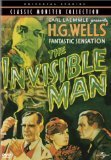
 After the kids were in bed (and I use that term loosely, as any parent of candy-filled kids can attest to), Denisa and I decided to finish off our Halloween festivities by watching a classic horror movie: The Invisible Man. I wanted to watch something scarier, but Denisa is not a big fan of scary, so we settled on this.
After the kids were in bed (and I use that term loosely, as any parent of candy-filled kids can attest to), Denisa and I decided to finish off our Halloween festivities by watching a classic horror movie: The Invisible Man. I wanted to watch something scarier, but Denisa is not a big fan of scary, so we settled on this.It was a pretty good movie, all told. The special effects were remarkable for 1933. I imagine you all know the story: there's a scientist. He's turned himself invisible. (Shocker, I know.) Also, he's gone mad and decided to start killing lots of people, because hey--he can.
I'm sure at the time it was a real edge-of-your-seat sort of a film, but as we were watching it, I couldn't help but think how far pop culture and horror has shifted in the days since this came out. The Invisible Man has no super-powers, other than being invisible. No mind control. He can be shot. He's not super fast or strong. He's a guy. Who's invisible.
And he strikes terror into the heart of everyone he comes across. (Seriously. There's this innkeeper's wife who would. not. stop. screaming.) Why is he terrifying? Because he's invisible.
What would happen today with something like that?
Denisa and I just kept wondering why everyone in the room didn't gang tackle the guy and beat him senseless. He's not even armed. Thirty policeman. A closed room. The invisible man is talking (so you know where he's standing, generally). He's even kicking people and doing stupid things like knocking their hats off. That's when everyone gets together and has a little invisible man piñata party.
Problem solved.
But in 1933, what did people have to be scared of? There'd been no serial killer movies. No terrorists--not on a massive scale. No zombie apocalypses. I think the world (both in pop culture and in reality) has become a much scarier place, and our viewing habits and expectations from fiction and film have changed accordingly.
Which got me thinking some more. If you wanted a truly scary invisible man today, what would you have to do? It's certainly disturbing to think he can be anywhere--that you could be watched at any time and not know it. I think the ability to go non-corporeal would help tremendously. If he can pass through walls, through people--through anything--and yet take on a physical form when he wants to, that ups the ante a lot. (Though it also begs the question as to what the difference is between that and, say, a ghost. My answer would be that ghosts are usually more confined to a location or time of day. This kind of invisible man could go anywhere. Do anything.)
The concept is still really cool. I'm sure something could be done with it (and something likely already has, come to think of it), but this movie as-is . . . just isn't scary at all anymore.

Published on November 01, 2012 09:30
October 31, 2012
Book Review: Partials, by Dan Wells
 Partials by Dan Wells
Partials by Dan WellsMy rating: 4 of 5 stars
Partials ended up being a flat-out fantastic read. A superb start to what promises to be a fantastic YA series. But I have to be honest: I was quite frightened for the first third of the book or so, and not in an "I'm so engrossed with this story--what's going to happen to these poor people" sort of a way. I'll tell you why in a moment.
The basic plot is thus: a virus pops up that kills 99.996% of the human population, leaving only Partials (cyborg human clones) to rule the bulk of the world. Naturally, there are a few human survivors, who've banded together on Long Island and are struggling to find a cure for that virus (which is killing every newborn baby). The fate of the world rests in the hands of these few people. And there's naturally a lot of in-fighting, so it's looking more and more like the fate of the world rests in the teen population of these people (since the teens are more open-minded and less prone to making huge power grabs).
Once the book is up and fully running, it fires on all cylinders. There's action, suspense, betrayals, and plot-twists aplenty. I read the last half of the book in about a day.
I did, however, have some issues with the first third of the book.
Whenever I pick up a book by a friend (DISCLAIMER: Dan Wells is a good friend of mine, if you didn't already know that), my first feeling is excitement that yet another book has been published by someone I think is awesome. My *next* feeling is dread: what if I don't like it?
I hate hate hate avoiding talking to a friend about their book if I didn't care for it. It's a terrible feeling. I want to like their books. In many ways, I'm reminded of the scene in Funny Farm where Chevy Chase has his wife read his draft, and he sits next to her, watching her. Scrutinizing her every movement and response.
It's like that.
Of course, with Dan--who's a successful author living the dream right now--it's not as vital that I personally love his work. (Even though I have yet to be disappointed by a Dan Wells book, so that's a great track record). But still, I worry.
And for the first third of the book, I really did worry that this was going to be one of Those Books. I found myself doing other things rather than reading the book. Checking Facebook. Playing on my iPad. Avoiding actually reading it. The book seemed like it was a whole lot of setup and not a lot of action.
I like my books to clip along at a fast pace--especially my YA books. This one wasn't. It was really gloomy.
But as I said, a third of the way in, suddenly things start picking up. Protagonists start having actual plans and start implementing those plans, and the book picks up speed. By the last third, it's a total blast. Easily five stars-worthy. But it does take a while to get there, and I can understand the objections I've heard about the book.
Still, I think this is a novel that people should give a chance to, if for nothing else than the fact that it's got one heckuva ending, and it's the first in a trilogy. I imagine that the setup phase will no longer be necessary in the sequels--it can be All Awesome, All the Time.
How does it compare to other dystopias? Quite well, I'd say. The first third feels a lot like the third book of Hunger Games, with the last third feeling more like the first book. If that makes sense to you, then congrats--you're a YA fan. :-) It wasn't quite as brutal and bleak as Ness's The Ask and the Answer. But at the same time, more tech-y.
Does that review make sense? I know it's rambled a bit, but that's what you get when you get me reviewing books from time to time. I do indeed highly recommend this one. Just give it time to get to where it gets great. I feel like the payoff is worth the investment.
View all my reviews
[image error]

Published on October 31, 2012 08:30
October 30, 2012
Hurricane Sandy and Me
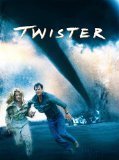
 Because I have friends all over the place, and some of them have wondered how I'm doing in the aftermath of Hurricane Sandy, let me assuage your fears.
Because I have friends all over the place, and some of them have wondered how I'm doing in the aftermath of Hurricane Sandy, let me assuage your fears.Nothing happened.
Not nothing-nothing. It was a tad windy, but it's been a whole lot windier at other times. We didn't even get any fallen branches. But other than that and some heavy rain today, it's been pretty much a non-event. For which I am very grateful. I'm seeing a whole lot of activity and posts from other friends who were not as fortunate--because I have friends all over the place.
So there's flooding in New York, downed trees at the house I grew up in in PA, flooding in DC--a whole lot of people were affected by this beast of a storm. To give you an idea of the sheer size of the storm, I was talking to my mom yesterday evening, and she'd just heard from her ranch in Virginia that it was 20 degrees and snowing down there, and we were seeing wind and rain up here in Maine. It's not often that you see a single storm affect an area that huge.
Scary.
So don't worry a whit about me up here in Maine. I didn't even have a light flicker. But please do worry and do what you can for areas harder hit by the storm--PA, NJ, NY, and so on.[image error]

Published on October 30, 2012 10:50
October 29, 2012
How to Fix Large Plot Problems: Vodnik Chapter Twenty-Five and Twenty-Six

 Two chapters in one day today, mainly because what I have to say about them is the same for both chapters. One of the biggest problems the early draft of VODNIK had was this huge gaping hole in the middle of the build up to the climax. In the original, Tomas gets zonked out for two weeks, and then it's all a mad dash scramble for him to catch up and do everything that needs doing in just a few days.
Two chapters in one day today, mainly because what I have to say about them is the same for both chapters. One of the biggest problems the early draft of VODNIK had was this huge gaping hole in the middle of the build up to the climax. In the original, Tomas gets zonked out for two weeks, and then it's all a mad dash scramble for him to catch up and do everything that needs doing in just a few days.It didn't work at all.
But why it didn't work was a very eye-opening experience for me as a writer. It wasn't because the plot idea was stupid. There are tons of weaker concepts than that used all the time--successfully--in writing, television, and movies. It also wasn't because it was executed the wrong way. That was my first instinct--that I'd done something wrong in the actual "Tomas gets zonked out for two weeks" description. So I wrangled with it for quite some time, trying to make it read better, or flow better, or anything. But the more I looked at it and fiddled with it, the more I was convinced that it in itself didn't have any problems. So I must have been wrong, and it was too stupid of an idea, after all.
I started massively revising the ending--thinking about what else I could put in there. But the more I thought about it, the more I felt like the ending was how it should be. I didn't want to revise it. And that's when I discovered the problem didn't lie with the ending. It was all tied up with the setup to the ending.
I hadn't properly prepared the reader to accept the fact that it was possible Tomas could get zonked out for two weeks. It came too much as a surprise. I went back and highlighted those passages a bit more. Put in a few mentions of Tomas feeling weaker, and worrying about getting zonked out for a few weeks--or more. In the end, I didn't really add much at all. It was the equivalent of flipping a few switches and then calling it good.
When I gave it to new readers, I was pretty apprehensive. Surely it couldn't have been that easy. They'd read it, and they'd still have the same huge problems with the end. I waited for feedback, and it came. No mention of having problem with the end. They loved the tension and drive and climax. It all flowed smoothly.
I had done it.
I learned a ton from that experience. First off, when a reader objects to something that happens in a book, it might not have anything to do with that actual spot in the book. It might be based in something that happens much earlier. So you can't just limit your focus to what's there at the trouble spot. Second, small tweaks in key places can make a much bigger difference than large tweaks or massive revisions. In lots of ways, writing is like sculpting in this arena. You write your draft and get all the main pieces in place, and then you move in and start chiseling in the fine details. It isn't until everything is really set and honed that it all looks great. If a hand of a sculpture is looking off, for example, the answer isn't to lop the hand off and change the sculpture's overall look. It's to get that hand right.
This isn't to say that you don't need to massively redo things from time to time. But if you've created a solid first draft, that should be a rare event. When there are huge problems, it's often sufficient to go back to where those problems began and start fixing them on a small scale.
And that's all I have time for today. Looks like Hurricane Sandy is on her way to greet me. I'd better go tie the dog down outside. (I don't have a dog.)
Stay safe, everybody![image error]

Published on October 29, 2012 09:30
October 26, 2012
In Defense of Civility in Politics
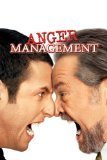
 I'm a pretty conservative guy, by most people's standards. I get that. I could probably be called old-fashioned in many ways, and I wouldn't bristle at the label. That's likely a big reason I'm so fed up with the political news cycle. I get that politics has been dirty and slimy for quite some time. But then along came the 24 hour news cycle, where there HAD TO BE NEWS EVERY MINUTE OF THE DAY, or what are they going to talk about? And of course politics fit perfectly into this niche, because there's never an Answer, never a solution. It's all about process and compromise.
I'm a pretty conservative guy, by most people's standards. I get that. I could probably be called old-fashioned in many ways, and I wouldn't bristle at the label. That's likely a big reason I'm so fed up with the political news cycle. I get that politics has been dirty and slimy for quite some time. But then along came the 24 hour news cycle, where there HAD TO BE NEWS EVERY MINUTE OF THE DAY, or what are they going to talk about? And of course politics fit perfectly into this niche, because there's never an Answer, never a solution. It's all about process and compromise.Except that with the 24 hour news cycle, it started to evolve. Because it's boring talking about compromise and facts. It's better television to get people on the screen having Firm Opinions. And not just firm opinions. Deeply held beliefs. And not just talking about them. Fighting about them. Honestly, sometimes I wonder if I'm watching political discussions or professional wrestling.
And then--as if that wasn't bad enough--social media came along. Suddenly. everybody's got their own soapbox to stand on and start berating everyone else about how wrong headed they all are. And because social media is becoming more integral to our lives, it's increasingly difficult to turn off that fire hose of political opinions that keeps blasting into your brain.
Suddenly we're being confronted not just with our friends' politics, but with their friends' politics. Folks, there's a reason I don't go into a room full of strangers and proclaim loudly, "I THINK ALL DEMOCRATS AND REPUBLICANS ARE MORONS." (Not a real opinion of mine, by the way.) First off, I recognize a statement like that is a complete over-generalization. Second, I realize many of the people in the room are either Democrat or Republican. And third, I realize that my own personal opinion really doesn't matter a whole lot when it's proclaimed from the rooftops like that. Opinions are great shared with friends. With people who care. They're not so great shared with strangers.
But Bryce--you ask--what about your blog? You write your opinion on that all the time.
True. But I do that because it's a longer format than a Facebook post or Twitter. (Good thoughts and discussion do not lend themselves well to 140 characters or a sentence or two.) Second, I generally provide a link on Facebook or Twitter that includes a brief description of the content or title of the post. It's up to people if they want to click through or not. I imagine it's quite easy to ignore me. (A fact confirmed by my blog analytics from time to time.)
In any case, one thing I'm hoping Facebook and Twitter are slowly showing to people is that you can have a wide variety of political opinions and still not be an idiot. Ideally, Facebook and Twitter can break down stereotypes about Republicans or Democrats. In practice, I haven't seen that happen much just yet, but one can always hope.
But I digress.
My final complaint about politics (well, the final complain I'll write about today, at any rate) is the way things are played out by the candidates on a national stage. Calling each other names. Pointing fingers. Going for the cheap shot. I get that it plays well with the lowest common denominator, but every time either side does it (veiled insinuations Obama is a Muslim (as if that should matter), swipes at Romney's religion (which I can't help but take personally), etc.), I cringe more and more inside. If I treated my coworkers the way these two campaigns treat each other, no work would ever get done. We'd be too busy trying to kill each other.
And of course, each campaign is only too eager to list the myriad ways the other side crosses the line. Made false promises. Flip-flopped. Hit below the belt. But both sides do it, and that's a fact. Anyone who disagrees with that fact is drinking too much partisan kool-aid. (Tastes like grape, in case you were wondering.)
Bah.
Much good this post does me. I wrote it hoping to get some of the anger and frustration out, and it's only crystallized it into a purer form. Oh well. Have a nice weekend, everybody. And just think: in less than two weeks, our great nation can stop trying to fight over who should be president and go back to fighting over how stupid or great our president is.

Published on October 26, 2012 12:18
October 25, 2012
Movie Review Roundup: Ca$h, Hanna, Night of the Hunter, War of the Arrows
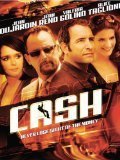
 Three very different movies for your perusal this time, all watched in the last week or so at various times. Let's get right to it, since I'm short on time today:
Three very different movies for your perusal this time, all watched in the last week or so at various times. Let's get right to it, since I'm short on time today:First up, Ca$h, a French heist film that I actually really enjoyed, despite the fact that IMDB only has it at 5.8 stars. Netflix told me I'd give it 4 out of 5, and I did. The plot is very well constructed, and although I had inklings about what was going to happen, it was still a pleasure to watch unfold. The premise is the same as so many other heist movies: a job goes bad, someone dies, and the team's out for revenge. Also like most heist movies, it's better if you don't know that much about it going in. It's all about the reveal. Watching this film while finishing off the ending of TARNHELM (my current book project) made me appreciate it that much more. Having a twisty turny climax is much, much more difficult than you think it's going to be. 3.5 stars. (Note: the version on InstantWatch is unrated. The IMDB rating is R. Besides a slinky dress, I didn't see anything in this to really warrant an R rating. Maybe I missed something . . . )
Hanna was a strange movie. Very intense and brutal flick about a guy who raised his daughter to be a killer, because he knew that some very bad people (Cate Blanchett) would be after her if they ever found her. It's PG-13, but has some very disturbing images that Denisa most definitely didn't like. Still, it had a surreal sense to the film that I quite enjoyed, and (for the most part) the characters were well drawn and depicted. Some very good action scenes, and I was quite impressed with the young lead (Saoirse Ronan, who was also in City of Ember and The Lovely Bones.) Three stars.
Then we have Night of the Hunter, a classic suspense movie from 1955, starring Robert Mitchum as a serial killing pretend preacher stalking a family through the course of the film. Yes, you read that right--1955 serial killer preacher. It's possibly most famous for Mitchum's tattoos in the film: LOVE and HATE tattooed on the fingers of his right and left hands. This was a much artsier film than I expected, but I really enjoyed it. There's a reason it's number 172 on IMDB's top 250 list. Mitchum does a fantastic job in his lead role. A real classic. 4 stars.
Finally, Korean martial arts movie: War of the Arrows. Well, more of a Korean bow and arrow movie, though I'm not sure such a thing exists. Set during one of the Manchu invasions of Korea, a man goes to extreme lengths to save his sister, who has been kidnapped by the Qing Dynasty. They came up with just about every way to have a tense arrow fight you can think of in the movie, and if that doesn't sound like it interests you, then what's wrong with you? I had a great time with the movie, though it was a tad slow in places. 3 stars.
And that's all I have for you today. Have a nice Thursday!

Published on October 25, 2012 10:30
October 24, 2012
House Renovation Update
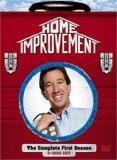
 It's been a while since I updated you all on the many adventures of keeping my house from collapsing in on itself due to age. This year has been a bit of a slower year, construction-wise. We had some big goals for the summer, but other things (trips to Europe, new church responsibilities for Denisa, new baby on the way, new pump for the well) got in the way.
It's been a while since I updated you all on the many adventures of keeping my house from collapsing in on itself due to age. This year has been a bit of a slower year, construction-wise. We had some big goals for the summer, but other things (trips to Europe, new church responsibilities for Denisa, new baby on the way, new pump for the well) got in the way.Still, it hasn't been a complete wash. The biggest investment was getting our basement insulated. That's all done now, and it was fairly more complex than I thought it would be. First came the lovely plastic lay-down, and then we had a company come in and spray closed cell foam insulation 2 inches thick all along our basement walls. It has to be covered with a coat of paint to keep it safe in case of a house fire. The whole project cost us $2000 (the foam part. The plastic cost $100 and a really bad migraine). My biggest fear was that we'd make the investment, only to see no appreciable change in the temperature of our house.
I'm happy to say that the initial indicators seem good. Our floors are much less cold. They're not warm (we have no heat in the basement, after all--so there's no warm air to come up through the floor), but they go to room temperature pretty well. I think it's mainly due to the fact that there's no longer freezing air down there counteracting the warm air in the living space. So I'm waiting to give it a full thumbs up, but it seems likely that it was a very good decision.
We also got the plumbing switched throughout the house, moving from a mishmash of various types over to much simplified PEX tubing approach. This, coupled with the new well pump and new-to-us water tank (gift from a friend) have made a huge difference in our plumbing. Our water pressure is finally normal, as opposed to weak. Hot water shows up at the kitchen after 18 seconds, as opposed to 60 seconds. This is a big plus, believe me. We also swapped out the kitchen sink, which had been leaking.
So when I take a step back and look at the changes we made, I think it ended up being a fairly close to normal year. We spent $4000 or so on all of the changes. Nothing big renovation-wise, but a lot of small things that make a difference on a day to day basis, which is sometimes even more important.
Also good news? The wood is all in for the year. We bought 3 cord to go with the .75 cord or so we had left. Seeing as how we'll be gone for 3 weeks in December, I think that should be more than enough to see us through to spring. (Especially since--theoretically--it shouldn't take as much to keep our house warm, now that the basement's insulated.)
In any case, this brings to a close this year's house work. Always a good feeling. Next year? Who knows what we'll decide to tackle. There's a new driveway, sun room, patio, second bathroom, master bedroom, loft area, new pellet stove, porch tear down, house steps, giant tree removal, house trim repair, chimney repair, kitchen renovation and expansion . . .
Always plenty of options to choose from. :-)

Published on October 24, 2012 10:30
October 23, 2012
The Last Debate is Over. Hurray!

 So. The debates are over at last. Thank goodness. I watched last night's, mainly because I felt like I really should, not because I really wanted to. I have to think a lot of other people felt the same way. Twitter and Facebook seemed fairly subdued compared with the other debates--on both sides. There were a couple of people taking pot shots at the other side, but their hearts just weren't in it this time.
So. The debates are over at last. Thank goodness. I watched last night's, mainly because I felt like I really should, not because I really wanted to. I have to think a lot of other people felt the same way. Twitter and Facebook seemed fairly subdued compared with the other debates--on both sides. There were a couple of people taking pot shots at the other side, but their hearts just weren't in it this time.As for the narrative of the debates, I think the insistence to find out who "won" is pretty silly. "Who landed the most blows?" "Who got in more jabs?" "Who had the best zingers?"Blah blah blah blah. It's like after the first debate, where everyone agreed Obama did horribly, everyone expected replays of the same sort of scenario. Someone wouldn't show up to play. Someone would make a huge mistake in what they said.
I for one am extremely grateful my life isn't played out like one of these debates, where every little sentence is parsed and analyzed, every stammer is put under a microscope, and the world is waiting to point fingers at you and laugh. I've said it before and I'll say it again: you would have to be mentally not all there to actually want this job. Yuck.
As for my response to the debate, here's the video clip I used to sum it up:
Essentially, it seemed to me like Obama was there to argue, and Romney was there to sidestep and focus on the economy. Neither approach necessarily appealed to me that much. I definitely don't like nasty, and that's how Obama came across repeatedly. But I also would like substantive discussions about key differences between the candidates. Romney seemed to agree with an awful lot of what Obama said. So in the end, they were arguing over the same things, over and over.
Two more weeks. Two more weeks until the country can just go back to ignoring these yahoos, since nothing gets done in Washington, anyway. You want a prediction about the outcome of the election? It's going to be really close, one side is going to celebrate like it was a slam dunk, the other will cry foul, and we'll go right back to a deeply partisan government full of gridlock and hand wringing while the actual country suffers as a result.
I'm not jaded by politics, am I?
But for the next two weeks, we'll keep pretending like any of this makes a difference. Joy.
At least the debates are over.

Published on October 23, 2012 07:00























